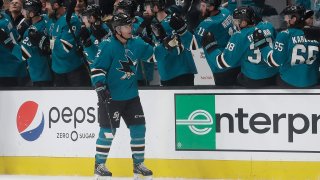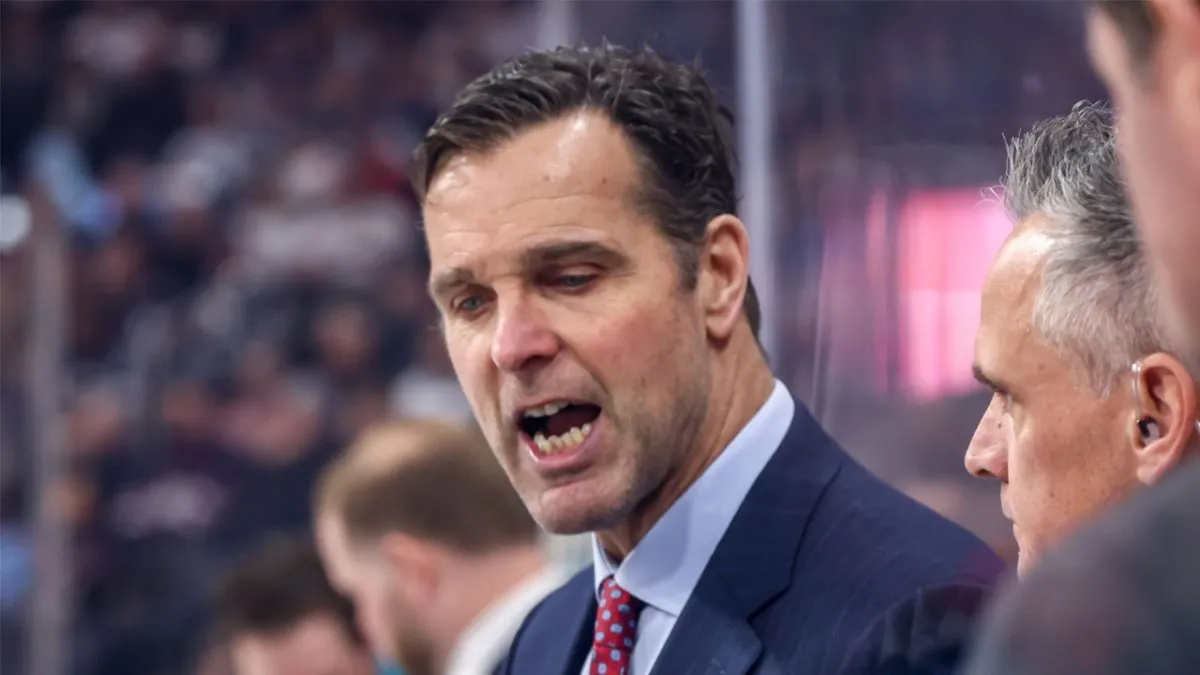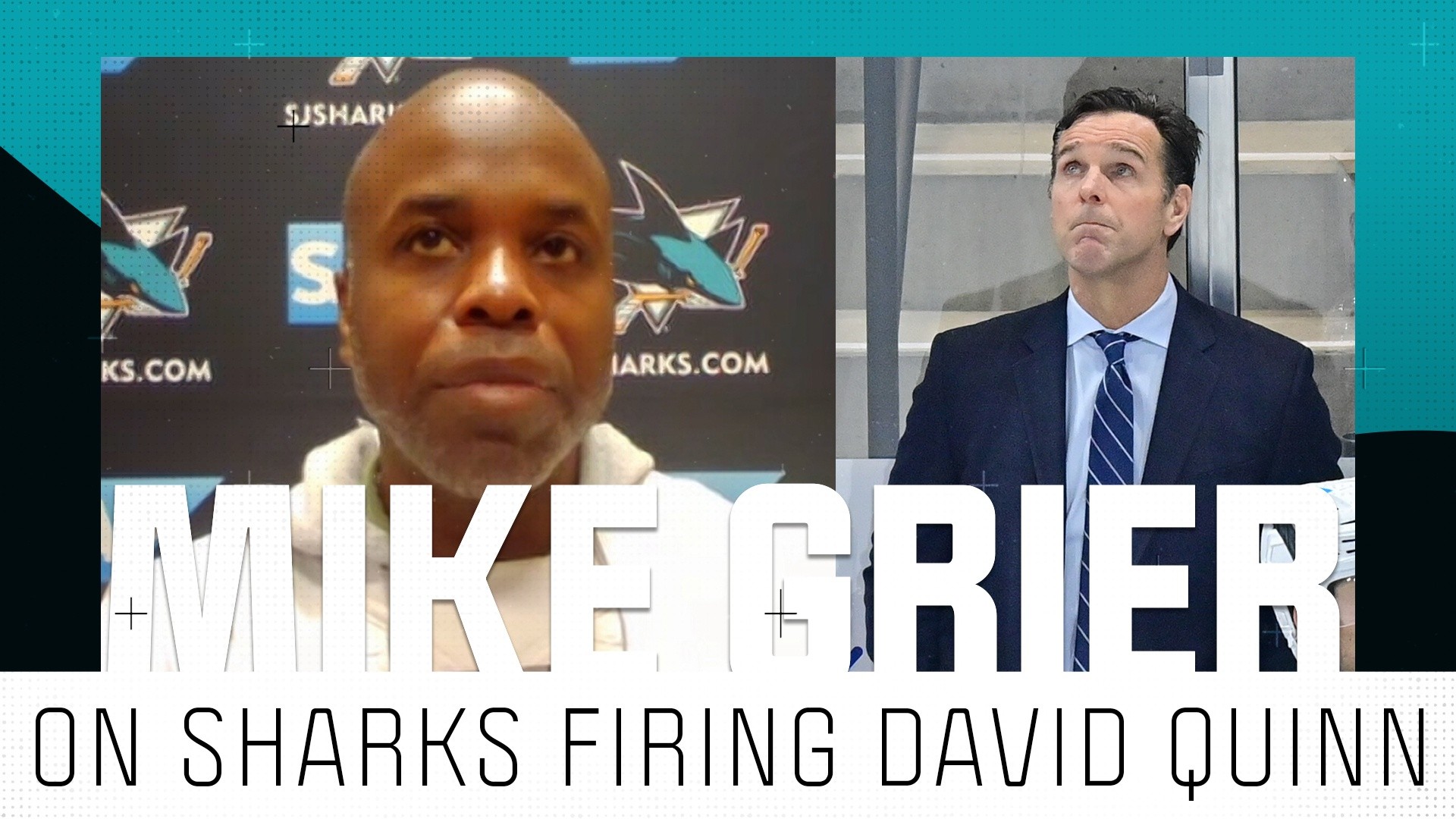
SAN JOSE -- It starts with one.
The Sharks (22-25-4) know they have a long way to go to get back in the playoff picture, so they're not looking too far ahead. They kept their focus on the task at hand Monday night at SAP Center, a divisional matchup against the long-time rival Anaheim Ducks (19-25-5), and handled business to the tune of a 4-2 win.
Stay in the game with the latest updates on your beloved Bay Area and California sports teams! Sign up here for our All Access Daily newsletter.
In both team's first game coming out of the All-Star break, both sides clearly benefitted from the time off, although San Jose seemed to get back in a groove slightly quicker, building a 2-0 advantage less than five minutes into the contest. Although the Ducks threatened at times throughout the game, the Sharks never relinquished the lead.
It wasn't a perfect game for San Jose by any means, but the team did enough to earn a much-needed victory. The rivals combined for 59 hits in the physical battle, while Aaron Dell was solid once again in net, stopping 26 of 28 shots.
Here are three takeaways from what the Sharks hope is the first of many wins in the second "half":
Strong start
San Jose Sharks
Just as the Sharks started the post-All-Star-break portion of the schedule on the right foot, so too did they begin Monday night's game. From the opening faceoff, San Jose exhibited a jump that had been lacking the last time it took the ice. The Sharks had scored one goal over their previous two games, both losses. They doubled that total within the first five minutes Monday night.
San Jose appeared to follow the lead of its fourth line, which did precisely what it was supposed to do to get Team Teal on the board. Just under two minutes into the contest, the fourth line forced an offensive-zone turnover off a face-off. The puck found its way to Joel Kellman, who threw it at the net and had his shot deflected in by Stefan Noesen for the Sharks' first goal.
A couple minutes later, it was the third line's turn. After dumping the puck in on the forecheck, Dylan Gambrell was able to work it over to Patrick Marleau in the corner, who passed it in the direction of Marcus Sorensen, who was parked in front of the net. The pass was deflected by a Ducks defenseman, but fortunately for San Jose, it bounced right back to Marleau, who promptly lit the lamp.
Noesen and Marleau helped get the Sharks off to the start they needed, and neither was done scoring on the evening.
The ageless wonder
San Jose took the 2-0 lead into the second period, but saw it cut in half on Ondrej Kase's short-handed goal just over nine minutes into it. Anaheim had all the momentum at that point, and appeared poised to tie things up before long. Marleau had other ideas.
With less than five minutes remaining in the second period, The Ducks' defense misplayed a faceoff in San Jose's defensive zone. Marleau got behind them, and that was that.
Marleau didn't just get to the puck first. He retrieved it, opened up a lead and then padded the Sharks' advantage. He simply looked like the fastest player on either team Monday night, and after watching that goal, he still might rank among the fastest skaters in the entire league. Those other skaters, though? They're not 40 years old.
Marleau is. He has been better this season than he was in the last, and at this rate, there's no reason why he shouldn't be able to unseat Gordie Howe as the NHL's all-time leader in games played next year.
Special-team problems
In addition to Kase's short-handed goal, Anaheim's Nick Ritchie notched a power-play goal late in the third, and while it didn't change the final outcome, it did continue a concerning trend for San Jose. Including Monday's win, the Sharks have now allowed at least one power-play or short-handed goal in each of their last five games.
It's one thing to have an ineffective power play. It's entirely another to be a defensive liability, as well. San Jose has been able to rely on it's top-ranked penalty kill all season long, but clearly, even that is in a bit of a downspell. If the Sharks are going to do the unlikely and make it back to the postseason, the special teams dont just have to be better; they have to be special. Right now, they're a far cry from that.


